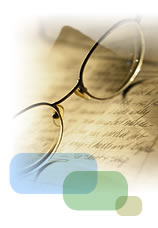STROKE
A stroke occurs when there is a blood clot or bleeding
in one of the blood vessels within the brain. The brain is a unique
and delicate organ that requires a constant supply of oxygen, carried
via the intricate and extensive network of blood vessels in the brain.
Blood leakage from a burst vessel, can damage the surrounding brain
tissue, whereas a blood clot can block a blood vessel and cause a
particular part of the brain to die. With either case, the affected
area of the brain will not be able to function as it did before the
episode.
What are the possible symptoms of stroke?
The symptoms and signs of a stroke depend on the part of the brain
that has been affected. Immediate medical attention should be sought
for someone suspected of suffering a stroke. Symptoms of a stroke
can include:
| |
 |
 |
A loss of consciousness. A person
can feel disorientated and less aware or they may loss consciousness
completely. |
 |
The person may have problems
speaking. This can mean the person has difficulties saying the
words or doesn’t make sense in what they are saying. |
 |
The person can have difficulty
understanding what is being said to them. |
 |
The individual may loss his short-term
or long-term memory. |
 |
A person’s vision may be
affected in one or both eyes. |
 |
The person might find it difficult
to eat in terms of swallowing or chewing. They may also dribble
from the side of their mouth. |
 |
The person may have problems
controlling their bladder and bowels. |
 |
Loss of feeling and sensation
in areas of the body can occur, usually along one side. |
 |
Problems with co-ordination,
balance and sudden changes in mood/emotion may also be evident. |
What support is available?
The treatment plan for a stroke victim depends upon the type of symptoms
and severity of the stroke they have suffered. People can make good
recoveries from certain types of stroke, were as some can be left
with long-term disability. It is extremely important to begin rehabilitating
a stroke victim as soon as is possible. Support and assistance from
family, hospital staff and professionals in different areas of rehabilitation
along with good aftercare at home are important. Help would be available
from, social workers, district nurses, physiotherapists, speech
therapists, occupational therapists, home-helpers and meals on wheels.
What
can cause a stroke?
Atherosclerosis is the most common cause for the onset of a
stroke. This is were the arteries become narrower due to a build
of fatty
cholesterol and other substances on their interior surface. When
one of these arteries becomes completely blocked in the heart,
it can
result in a heart attack and alternately if it occurs in the brain
it can cause a stroke. Abnormalities in the brain vessel structure
can also make them vulnerable to bursting. Risk factors which
can contribute towards a stroke occurring include:
| |
 |
 |
Smoking |
 |
High Blood Pressure |
 |
High Cholesterol |
 |
Obesity |
 |
Lack of Exercise |
 |
Diabetes |
 |
Family History of Stroke |
 |
Atrial Fibrillation - A type
of irregular heartbeat |
 |
Other Causes of Heart Disease |
|



![]()